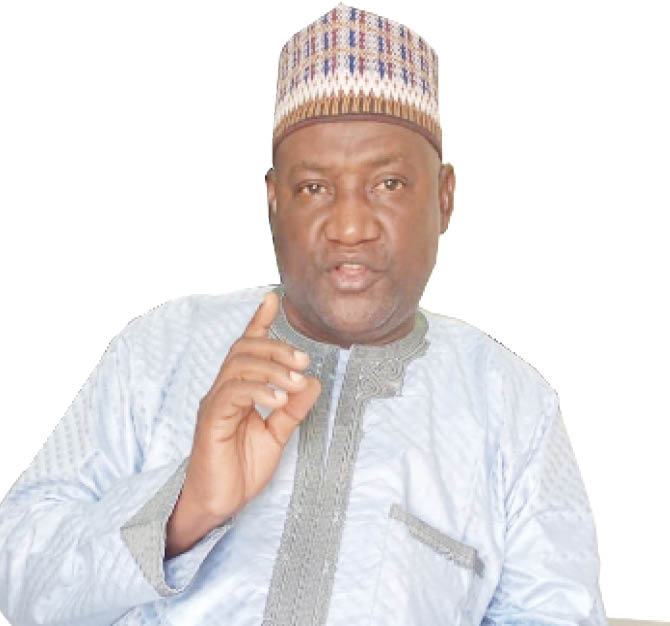Alhaji Musa Shehu is the national president of Wheat Farmers Association of Nigeria. He took over from Mohammed Salim who passed on weeks ago. Daily Trust on Sunday caught up with him during a stakeholders’ meeting in Abuja where he explained the current issues confronting wheat farmers and his plans on moving the association forward.
What do you want to achieve as the new president of the Nigerian Wheat Farmers Association during your tenure?
As you are aware, our leader, Muhammad Salim, may his soul rest in perfect peace, died earlier this month and as a result, I was elected as the association’s new president. When you enter a new system, you need to understand how it works, figure out what is going on, and then plan ahead of time where you’re going. It’s a national issue, in the sense that it’s not going to be an easy assignment because we need to work to bring in so many technologies that will propel things forward.
I met the association while it was dealing with a variety of issues. Nonetheless, I am attempting to reform the association in order to build a new structure that will encompass all sections of the country, particularly since the current management is predominantly from northern Nigeria. I’d like to incorporate the southern half of Nigeria into the system. To make the association a standard national one, each of Nigeria’s six zones should have a representation. The second concern is the Anchor Borrowers’ Programme debt, which I met on ground. The association took part in two ABPs conducted by Unity Bank and Heritage Bank, and I’m currently attempting to figure out how we might repay the loans supplied to farmers. We wish to also reorganise our constitution because it serves as the foundation for any organization or union and has a vast number of amendments that will improve management. In order to position the association to handle problems internationally, we also need to expand it locally.
The market, high-quality seed, and other factors have all presented hurdles to wheat production over time. What steps will you take to address these issues?
The problem with wheat production is not simply confined to the market; you must also consider the input itself, particularly seed. In the Nigerian setting, research institutes that breed seed only do so on demand; therefore, very few seeds are in the hands of farmers. The certified seeds that we have are insufficient to meet the needs of all farmers in Nigeria involved in wheat cultivation. The Ukraine and Russia conflict is an indication that we have to do something to boost seed development which will help us to develop our wheat production to meet our local and national demand. So, one of the problems we’re facing is that certified seeds are not enough. I know a research institute and other agencies are doing their best now to ensure availability of seed.
On the other hand, like you said, the market is another challenge. If you observe, few years ago, farmers ignored wheat production because there was no market suitable for them. They were always losing but now we have already engaged flour mill association and they promised that no matter how much we produce, they will buy it and in good prices. We have a standard MoU on that which is an assurance that no matter the quantity produced, they will be bought by the millers. Another challenge is that farmers are still unable to deal with stem borer pest affecting production and we are working hard to find a lasting solution to that disease.
What sort of collaboration do you have with the Lake Chad Research Institute, which has the national mandate to breed wheat varieties?
We have a good relationship with the Lake Chad Research institute, even though there is insecurity in the state where they are but they come to Kano, Kebbi, Katsina, Jigawa, Kaduna and others. At the moment they are also producing good seed that we can use next year and beyond.
I’m aware that there were seed varieties brought in by the CBN from Sudan and Mexico. Are these varieties in the hands of your members?
Normally here in Nigeria, we only have two types of seeds known to the farmers, Atilla Gan Atilla and Norman. Last year, CBN imported seed from Mexico and Sudan. You know geographical similarity also matters. Sudan and parts of Nigeria have similarities. Before they brought it, they had some ecological test to confirm that it can be grown here. We accepted it last year and it worked in some places while in some areas, there were some challenges. I don’t think it is now available for every farmer. The African Development Bank is also intervening in seed production. They even directed a research institute to produce more seed for the farmers.
If you go to Kano now, you will see that a lot of farmers have planted under the supervision of the research institute.
What do you envisage as the country’s production target by the time you’ll leave office?
My goal is to see a significant growth in hectarage. Kano has a potential for 350,000 hectares; however, it is underutilized due to shortage of seed and other difficulties. My goal is to see that we cultivate 500,000 hectares in Kano alone if the government supports farmers and farmers are prepared to do more. If we expand in all producing states, we will be one step closer to self-sufficiency. We have no choice but to increase output since global conflicts have made it essential.
What about going beyond only dry season production; are you thinking in that direction as well?
Yeah, we are not only going to talk about dry season farming but we are going to intervene in rainy season wheat farming. Countries like Russia, Ukraine and other Asian countries do rain-fed wheat farming but it never happens in the country. It was tested last year in Plateau and parts of Jigawa states. I have the zeal and the will that we are going to do it in two seasons, In Sha Allah.
What do you believe is required at this time to increase wheat production in the country?
We must direct our focus on mechanization. Mechanization is the best, not only in wheat, but any system of farming, which can promote the process and yield, as well as bring more development in the future. Most developed and Asian countries make more gains in agriculture because of mechanization. So, I’m calling on the federal and state governments to focus on mechanization. I think that the state governments need to do more in agriculture. There should increase in their budgetary allocation, particularly those in the northern states where agriculture has the potential for poverty alleviation. The CBN is already doing enough to ensure that farmers have access to funds but the attitude of the farmers is an issue. Some have refused to pay back their loans, which brought some setbacks to the programme. Despite that, there are still facilities for farmers.

 Join Daily Trust WhatsApp Community For Quick Access To News and Happenings Around You.
Join Daily Trust WhatsApp Community For Quick Access To News and Happenings Around You.


